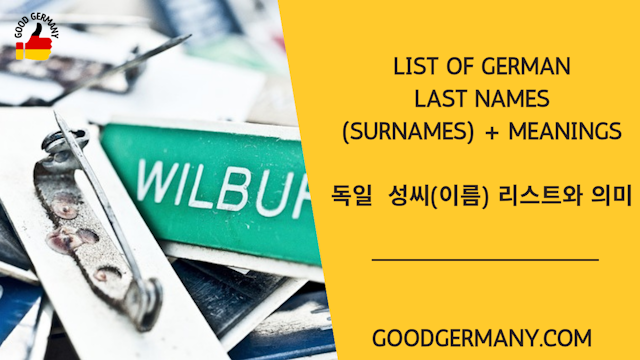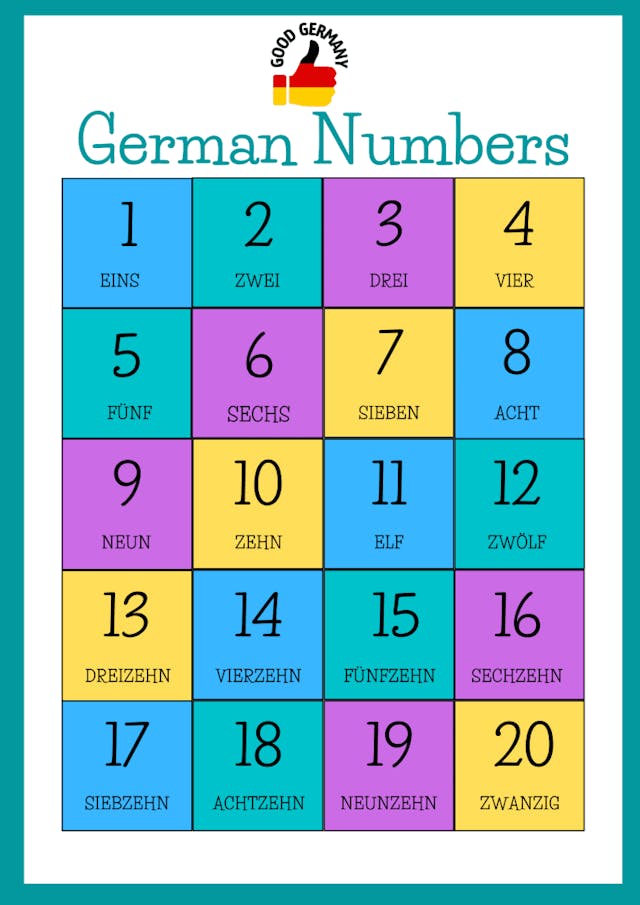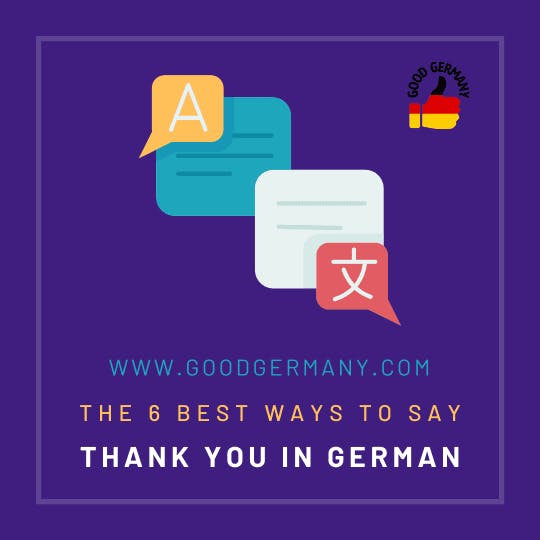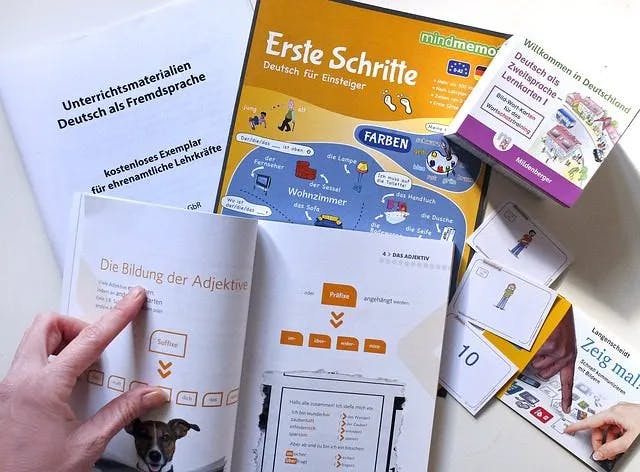German Basic Conversation
2023-07-13

Introduction to German Basic Conversation
German, the official language of Germany, Austria, Switzerland, and several other European countries, is widely spoken and holds great cultural significance. Whether you’re planning a trip to a German-speaking country or simply interested in learning a new language, having a basic understanding of German conversation can enhance your experience and open doors to meaningful interactions. In this article, we will explore essential phrases and topics that will help you engage in everyday conversations in German.
Greeting and Introductions
When starting a conversation in German, it’s important to know how to greet and introduce yourself. Common greetings include “Guten Tag” (Good day), “Hallo” (Hello), and “Wie geht es Ihnen?” (How are you?). To introduce yourself, you can say “Ich heiße…” (My name is…) followed by your name. It’s polite to use “Sie” (formal) or “du” (informal) based on the level of familiarity with the person.
Common Phrases for Daily Conversations
In everyday conversations, you’ll come across various situations where knowing common phrases can be helpful. For example, saying “Entschuldigung” (Excuse me) when trying to get someone’s attention, or “Danke” (Thank you) when expressing gratitude. Learning phrases like “Bitte” (Please) and “Es tut mir leid” (I’m sorry) can also prove valuable in different contexts.
Asking and Answering Questions
Asking questions is an effective way to engage in conversations and gather information. Some common question words in German include “Wer?” (Who?), “Was?” (What?), “Wo?” (Where?), and “Warum?” (Why?). It’s important to remember that the word order in German questions is different from English. When answering questions, you can use phrases like “Ja” (Yes), “Nein” (No), or provide more detailed responses using complete sentences.
Making Requests and Giving Directions
When making requests in German, using polite language is essential. Phrases such as “Können Sie mir helfen?” (Can you help me?), “Würden Sie bitte…?” (Would you please…?), and “Könnten Sie mir sagen…?” (Could you tell me…?) can be used to seek assistance or information. Additionally, understanding how to give directions, using phrases like “Gehen Sie geradeaus” (Go straight ahead) or “Biegen Sie links/rechts ab” (Turn left/right), can be useful while navigating through a German-speaking city.
Talking about Likes and Dislikes
Expressing your preferences and discussing likes and dislikes is a common aspect of conversations. You can use phrases such as “Ich mag…” (I like…), “Ich liebe…” (I love…), or “Ich mag nicht…” (I don’t like…) to express your opinions on various topics. This allows you to engage in conversations about food, movies, hobbies, or any other subject that interests you.
Talking about Hobbies and Interests
Sharing information about your hobbies and interests helps build connections with others. In German, you can use phrases like “Mein Hobby ist…” (My hobby is…), “Ich interessiere mich für…” (I’m interested in…), or “In meiner Freizeit…” (In my free time…) to talk about your passions and activities. This can lead to meaningful conversations and potential recommendations for new experiences.
Discussing Family and Personal Life
Family and personal life are important topics in conversations. Being able to talk about your family members and personal experiences in German can help you connect with native speakers. Phrases like “Meine Familie besteht aus…” (My family consists of…), “Ich habe… Geschwister” (I have… siblings), and “Ich bin verheiratet/ledig” (I’m married/single) can be used to discuss these aspects of your life.
Ordering Food and Drinks
Exploring the local cuisine is an exciting part of any travel experience. Knowing how to order food and drinks in German can enhance your dining experience. Phrases like “Ich hätte gerne…” (I would like…), “Was können Sie empfehlen?” (What do you recommend?), or “Eine Tasse Kaffee, bitte” (A cup of coffee, please) can be used to communicate your preferences to waitstaff or vendors.
Shopping and Negotiating Prices
If you enjoy shopping or visiting local markets, having basic conversational skills in German can be advantageous. Phrases like “Wie viel kostet das?” (How much does that cost?), “Gibt es einen Rabatt?” (Is there a discount?), or “Kann ich bar/zahlen mit Karte?” (Can I pay in cash/by card?) can help you navigate through shopping experiences and negotiate prices if necessary.
Talking about Travel and Directions
When traveling in a German-speaking country, discussing travel plans and asking for directions becomes essential. Phrases such as “Wo ist…?” (Where is…?), “Wie komme ich zum…?” (How do I get to…?), or “Welche Sehenswürdigkeiten gibt es hier?” (What sights are there here?) can assist you in finding your way and discovering interesting places to visit.
Expressing Opinions and Preferences
Sharing your opinions and preferences allows for engaging conversations and discussions. You can use phrases like “Ich denke, dass…” (I think that…), “Meiner Meinung nach…” (In my opinion…), or “Ich bevorzuge…” (I prefer…) to express your thoughts on various topics. This enables you to participate actively in conversations and share your unique perspective.
Talking about the Weather
Discussing the weather is a common icebreaker in many cultures. In German, you can use phrases like “Wie ist das Wetter heute?” (How is the weather today?), “Es ist sonnig” (It is sunny), or “Es regnet” (It is raining) to initiate conversations about the weather. This can lead to further discussions about outdoor activities or local climate conditions.
Expressing Gratitude and Apologies
Being able to express gratitude and apologize in German is essential for polite and respectful conversations. Phrases like “Vielen Dank” (Many thanks), “Ich bin Ihnen sehr dankbar” (I’m very grateful to you), or “Es tut mir leid” (I’m sorry) can help you convey your appreciation or apologize when needed. These phrases reflect cultural norms and contribute to positive interactions.
Conclusion
Learning basic German conversation skills can greatly enhance your experience when interacting with German-speaking individuals and immersing yourself in the language and culture. By mastering essential phrases and topics, such as greetings, common phrases, asking questions, making requests, and discussing various aspects of life, you can engage in meaningful conversations and create lasting connections.
FAQs (Frequently Asked Questions)
Q: Is it necessary to learn German to travel to Germany?
A: While it’s not mandatory, learning basic German can greatly enhance your travel experience and facilitate interactions with locals.
Q: Can I learn German on my own?
A: Yes, there are various resources available, including online courses, language apps, and textbooks, that can help you learn German independently.
Q: Are there any similarities between German and English?
A: Yes, German and English share some similarities, especially in vocabulary. Learning German may be slightly easier for English speakers due to these shared roots.
Q: How long does it take to become fluent in German?
A: The time it takes to become fluent in German varies depending on factors such as prior language learning experience, daily practice, and immersion opportunities. It can take several months to a few years to achieve fluency.
Q: Can I practice German conversation with native speakers?
A: Yes, there are language exchange platforms and local meetup groups where you can find native German speakers interested in practicing languages. Engaging in conversations with them can improve your speaking skills.
Share
Tag
Related Blog

15 List of German Last Names(Surnames) + Meanings
2024-01-14
German Numbers – From 0 To 2000
2023-09-07
The 6 Best Ways To Say Thank You In German
2023-09-07
Germany Language Alphabet
2023-09-01
Most Popular Names in Germany Top 10
2023-08-28
German Prepositions with Dative vs. Accusative: A Comprehensive Guide
2023-08-27
Greetings by Region: German
2023-07-24
German Basic Conversation
2023-07-13
Best Site to Learn German - Top 12
2023-07-06